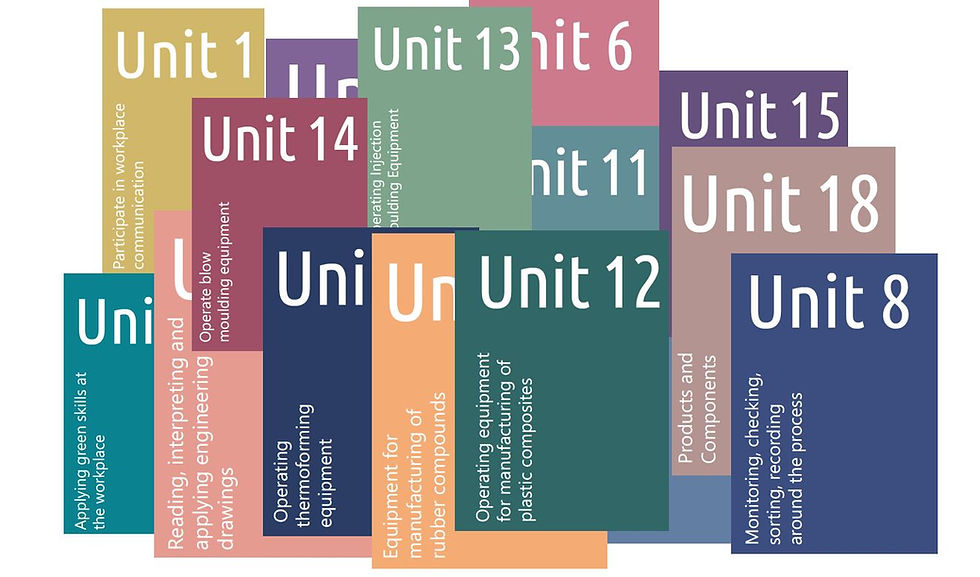Digital Future of Plastics Factories - How to successfully collaborate on an Erasmus+ project?
- Federica Gallicchio

- Oct 22, 2020
- 4 min read

The second webinar of the UPSKILL project Digital Future of Plastics Factories - How to successfully collaborate on an Erasmus+ project? took place on 15th October. The online event, organised by Polymer Comply Europe (PCE) on behalf of European Plastics Converters (EuPC), was part of the Erasmus Days 2020, the initiative aimed at highlighting the positive impact of the Erasmus+ projects on the partakers in the Erasmus+ Programme, through events taking place around Europe.
Marjan Ranogajec (EuPC) moderated the event, introducing the UPSKILL project and underlining its significance within the context of the digitalisation of the education; importance also glimpsed by the European Commission itself, being the UPSKILL project beneficiary of EU funding in the sum of €700.000.
Jordi de Vos (Circularise) gave a presentation on Digitisation and cooperation – unlocking the potential of the circular economy, focusing on the veracity of the sustainability claims of the biggest brands and on the means, designed by Circularise, to verify them and to help the operators across the value chain keep close communication in relation the actual content of their materials. The matter is treated by Circularaise from a double perspective: on one side, the OEM, demands to have detailed knowledge of the origin of the material, encountering however the boundary of their limited visibility along the value chain. On the other hand, no less than the OEM, the material producers face considerable difficulties in communicating their sustainability claims all the way to the end of the supply chain.
“The lack of information causes lack of true value of the material”, observed Jordi, and in this context the technology developed by Circularaise finds its reason for being: it takes a physical asset and creates a “digital twin”, linking the material to a QR code, which provides its specifics, allowing a continuous exchange of information throughout the entire value chain. Jordi further explained the functioning and the benefits deriving from Circularaise’s technology, which is also beneficiary of EU contributions.

The floor was then taken by Grazina Zardaleviciene from LINPRA - the coordinator of the UPSKILL project -, whose presentation focused on the goals and progress achieved so far, provided through an overview of the state of play of the project, its content and objectives. Started in 2018, UPSKILL will come to an end in April 2021, after the extension granted in order to face the obstacles brought by the COVID-19 outbreak.
Grazina illustrated the main goals of the project, identifying them in the analysis and identification of qualification and European VET curricula for plastics machine operators based on the current and future skills demand in the plastics industry; and in the development of work-based learning vocational training programme through the integration of digital, programming, circular economy, and lean manufacturing skills.
“Digitalisation is a relevant issue for all the companies in Europe. Smart machines need smart employees to work with them. The UPSKILL project is aimed at providing those employees with the needed skills”, observed Grazina. The project, through a work of close cooperation among its partners (VET providers, associations, and a public body), will allow the plastic industry to remain competitive and to keep on innovating, despite the digital challenges. Grazina’s presentation continued with a detailed description of the project activities and of the different work packages, including an overview of the current status and of the results expected by April 2021.

Subsequently, Marc Manguin (ISPA) analysed the UPSKILL project from the different perspective of the challenges and the obstacles encountered in the work on the manuals for students and teachers. Its presentation focused on Work Package 3 (Design of training material), which represents the core of the UPSKILL project. Being ISPA the leader of the WP, Marc had the chance to have a first-hand experience with the difficulties related to the designing of a training material, which needed to be aligned to the different contexts and needs of each country’s environment, to their different levels of digital education and to the different challenges ahead of them.
This type of obstacles, deriving from different sets of backgrounds, naturally occurred also in the context of the cooperation among the people involved in the creation of the training material, with whom the need to develop and use “the same language” frequently arose, this to be understood as the necessity to find a common ground in relation to different issues and their possible solutions.
Regarding the articulation of the work among different partners, an obstacle was also represented by the internal coordination and the challenges in defining a common timeline, sometimes hindered by the fact that the parties found themselves at different stages of the development of the training material.
But why did this happen? Every partner of the project works within its own and unique operational environment, which translates into variances in the integration of the project into their daily workload. Nonetheless, the consortium has successfully faced and overcame those impediments, setting deadlines, planning regular meetings and exchanging the progress with each other, constantly sharing results.

If you wish to follow closely our journey towards the ultimate development of digital, green, and entrepreneurial skills within the plastic factories, watch the entire webinar at this link and dive with our speakers into the heart of the UPSKILL project, its objectives and accomplishments.




Comments